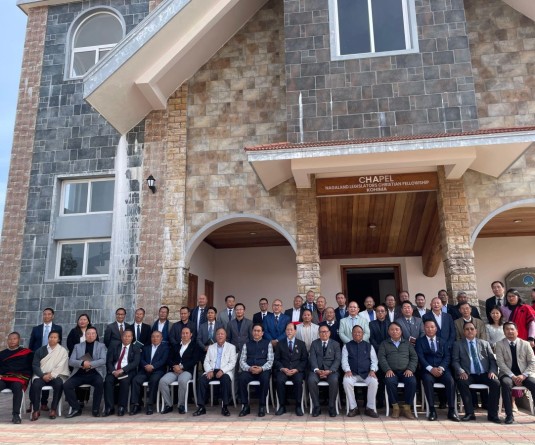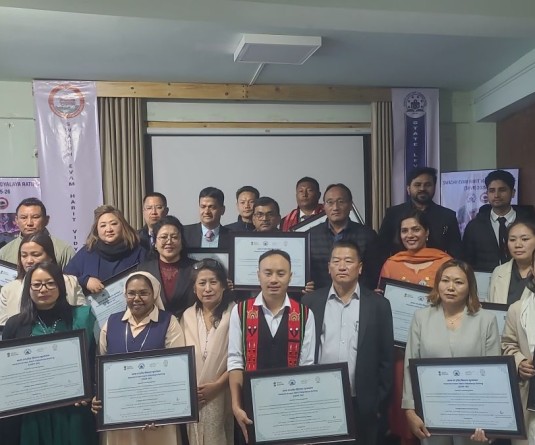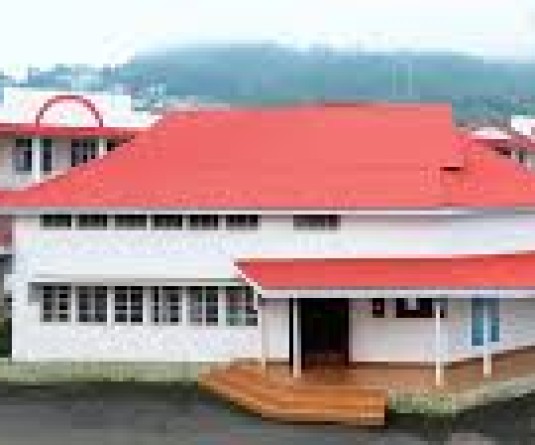
“We have nothing to hide—we are making peace here not war”
Morung Express News
Dimapur | June 20
When a private e-mail from Dr. Wati Aier, Convenor of the Forum for Naga Reconciliation (FNR), to a confidant in 2010 appeared in an English daily from Manipur, the Naga fraternity had cause for worry. Dr. Wati is of the view that his personal e-mail was hacked and his private messages were used for political effect.
Breach of Dr. Wati’s privacy for a political end is not new to the Naga context. Awkward beeps, important conversations cut midway, conversations going kaput for five seconds before they come back on and other such markers could point to a phone line being under scrutiny. E-mails and text messages are easily tapped and a massive state infrastructure facilitates this. Rights and peace based events have to be planned in a hushed manner so as not to be sabotaged, yet information leak is frequent.
According to Dr. Wati, when FNR started in 2008, the intelligence community had little clue of when any of their next meetings were slated for. Over the past two years, all FNR meetings make it to intelligence bureau charts even before anyone has been intimated. Officials have shown their knowledge of these meetings even though discussed among core FNR members only.
The new Central Monitoring System (CMS) legalizes this sort of mass data tapping, alongside mining of people’s identities (through the Aadhaar Card or UID system), at an unprecedented scale. This could lead to the further profiling and systematic manipulation of information related to the Naga, as well as other, peoples in the future.
Intelligence derived through other less technical methods has led to gross violations of human rights of the Naga people in the 1950s through to the 1990s. Coupled with security laws that undermine human rights in the region, India’s lens of looking at the Naga political situation can be understood to not have transformed.
In the past two years, monitoring has become more stringent in the Naga areas with or without legislation and accountability. “I got a call from the Ministry of Home Affairs couple of years back asking why my brother had left the country. They even produced a phone number that my brother used only to make personal family calls,” informs rights activist Chonchuirinmayo Luithui. The Ministry had all sorts of other information on internal family matters of the activist. Material collected thus could be used to create evidence in a court of law if need be; in India, many tribal activists continue to languish in jails under security laws for simply speaking up against state violence.
“In a conflict region, systems like these create a platform to elevate the context of an interaction to what it is not,” explains Murali Shanmugavelan, currently pursuing his doctoral studies in Media and Communications from the School of Oriental and African Studies, London.
Something said in jest could be made to look like a national security threat. An everyday conversation could warrant arrest. “It lets the state create the profile of a person as the state wants it to be, not what it is.”
Thus, for human rights activist, Neingulo Krome, the CMS will create more agitation in the minds of people. “These systems are a threat to democracy. If agencies that implement them are allowed to function the way they are, they will soon challenge the authority of the government itself,” sounds Krome.
Lawyer Ayo Jajo Aier is of the view that in a race to become a superpower, India has given up its orientation towards people’s welfare. “This is more than state security—it is using invasive methods to ride over people’s backs to become the superpower India wants to be,” she says.
In the past, civil society movements in the Naga context have faced the brunt of state surveillance for broaching the question of Naga rights. The intelligence interface, coupled with brutal laws like the Armed Forces (Special Powers) Act, 1958, leave no space for people to address the question of their rights without being profiled as a “terrorist” or most recently in India as a “maoist”.
Over the past 4-5 years, suggest observers, intelligence presence in the Naga areas has increased with more locals being employed into state intelligence agencies. Suspicious eyes are tucked into every part of towns like Dimapur and Kohima, with central intelligence units using fronts to be housed next door. In border areas like Mon, intelligence officials litter the zone. India’s approach to the region has remained the same over the years, institutionalizing monitoring and control in ways that are not apparent but widespread.
“We have nothing to hide—we are making peace here not war,” asserts Dr. Wati Aier. “The Information Technology explosion has made things easier but has manufactured a different war that applies the same inhuman approach to conflict through technology,” he maintains. The end of the Cold War has brought the world to new conflicts of the 21st century concentrated around ethnic, tribe and religious lines. “Conventional diplomacy and resolution will not work for the Government of India. These methods will become weapons for the oppressed to fight back with. To go beyond this, a new paradigm is required,” says Dr. Wati.






